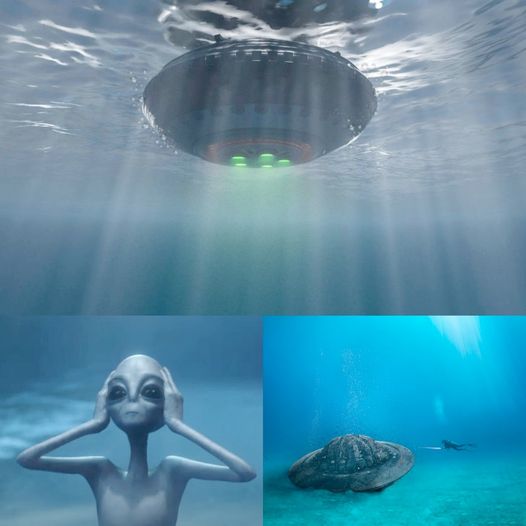A marine biologist believes that if aliens visited us, they would probably prioritize exploring our oceans. Therefore, he suggests that it makes sense to look for its presence there, in the deep sea.

In December 2022, Pentagon officials stated that they were expanding UAP terminology to “unidentified anomalous phenomena” (rather than “aerial”) to include objects that are submerged in water and those that transition between different media, such as air and water, further expanding the scope of the phenomena being investigated.
Credit: Andrew Pearce.
A long-awaited NASA report has called for improved monitoring and scientific understanding of unidentified anomalous phenomena (UAPs). Beyond how brief or elusive what was presented has been compared to what has been happening in public hearings in the US Congress, the fact that an institution of the stature of a space agency has been encouraged to get involved has marked another point in favor of serious UFO research.
These latest developments have also led some academics to express their opinion on the matter. Such is the case with Brian Helmuth, a professor of marine and environmental sciences at Northeastern University, who has implied that, if aliens have arrived here, they are probably very interested in his area of expertise—which is not UFOs, of course, but the deep sea.
“If I were an alien and were investigating Earth, the ocean would certainly be the place to start. “Not only does it comprise the vast majority of living space and living organisms on the planet, but it is also comparatively uninhabited by the only species—humans—that seems hell-bent on destroying its home,” Helmuth said. “It would be a great place to watch from.”

Prof. Brian Helmuth.
Credit: Alyssa Stone/Northeastern University.
The professor maintains that it makes sense that the 16-member NASA panel that issued the report last week included Paula Bontempi, an oceanographer who also spent 18 years at the space agency.
“She is highly respected in our field and in many ways the ideal person for this committee,” he said.
Scientists and experts on the panel led by astrophysicist David Spergel called for addressing the perceived phenomena in a scientific, not sensationalist, manner. They recommended using artificial intelligence and machine learning to distinguish between unknown and documented phenomena, ground-based sensors to observe the skies, and using crowdsourcing to collect data.
During the related press conference, officials also announced the appointment of a research director to lead studies into the phenomenon.
All of this marks a notable contrast with the official attitude of contempt that both the government and the scientific community maintained towards the issue of UFOs until recent years.
